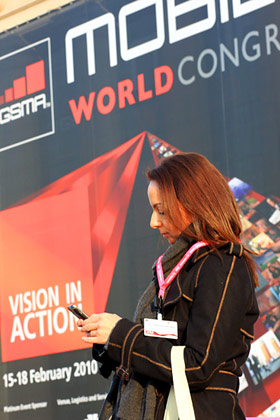 Wow.. seems yet another year just flew bye so we wanted to take a quick moment – with a warm rum and eggnog at hand – to pass along our very best wishes to all this holiday season.
Wow.. seems yet another year just flew bye so we wanted to take a quick moment – with a warm rum and eggnog at hand – to pass along our very best wishes to all this holiday season.
Looking back over the year, it’s been one of the most exciting periods to date with increased global awareness and adoption following the same basic path as we’ve seen in Japan.
Leaping forward into 2010, year of the Tiger, we expect to see continued explosive growth in the mobile industry and, of course, plenty of interesting stories to follow along the way.
It’s been a hectic schedule for everyone so we do hope you take a well-deserved chance to relax and re-charge. As usual we have a few cool projects cooking here – so stay tuned – meanwhile, you gotta see our latest edition of The Mob Rulz!


 Despite an unusual chill in the air, it was snowing when we landed on Saturday night, the annual Mobile World Congress in Barcelona is wrapping up here today with plenty of hot news bits. The 2010 event will most likely be remembered for the “Arrival of Android” and the keynote from Eric Schmidt was a refreshing shift from the usual ‘dumb pipe’ belly button gazing offered by the operators. Watch the full presentation, including a few interesting demos followed by Q&A,
Despite an unusual chill in the air, it was snowing when we landed on Saturday night, the annual Mobile World Congress in Barcelona is wrapping up here today with plenty of hot news bits. The 2010 event will most likely be remembered for the “Arrival of Android” and the keynote from Eric Schmidt was a refreshing shift from the usual ‘dumb pipe’ belly button gazing offered by the operators. Watch the full presentation, including a few interesting demos followed by Q&A,  Wow.. seems yet another year just flew bye so we wanted to take a quick moment – with a warm rum and eggnog at hand – to pass along our very best wishes to all this holiday season.
Wow.. seems yet another year just flew bye so we wanted to take a quick moment – with a warm rum and eggnog at hand – to pass along our very best wishes to all this holiday season.